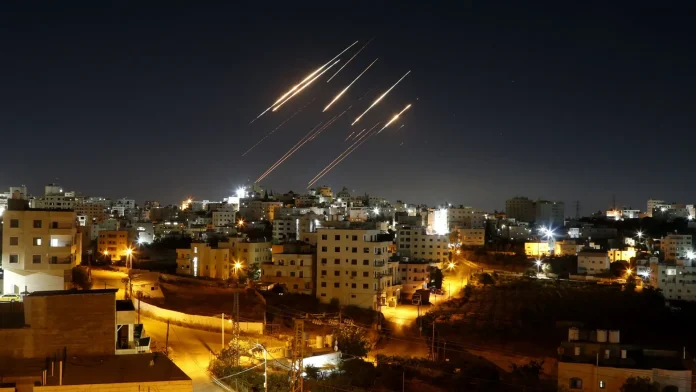TEL AVIV/TEHRAN, June 16: The deadly conflict between Israel and Iran entered its fourth day on Monday, with no signs of de-escalation as both sides launched fresh rounds of missile attacks, leaving at least 248 people dead across both nations. The situation continues to deteriorate, raising alarm globally and overshadowing ongoing international diplomacy efforts.
Iran’s Islamic Revolutionary Guard Corps (IRGC) confirmed it had launched a powerful wave of missile strikes on Israeli cities, calling it a retaliation to new Israeli airstrikes targeting surface-to-surface missile sites inside Iran. “The response this time is greater in force and intensity,” stated the IRGC in a release aired on state media.
Israel claims it has achieved “full aerial superiority” over Tehran, comparing its dominance to previous operations in the Gaza Strip and Lebanon. Israeli officials say the goal of the campaign is to dismantle Iran’s nuclear and ballistic missile programs, citing the existential threat of Iran potentially acquiring nuclear weapons. Iranian state media reports at least 224 deaths in Iran since Israel’s surprise opening strike on June 13.
Iranian President Masoud Pezeshkian, addressing Parliament, reaffirmed that Iran does not seek nuclear weapons but defended its right to peaceful nuclear energy and research. “For every hero whose flag falls, there are hundreds more to raise it,” Pezeshkian said defiantly, calling for national unity.
In Israel, 24 deaths have been reported as a result of Iranian retaliatory attacks. Strikes have targeted urban centers and critical infrastructure, including an oil refinery in southern Tehran that was engulfed in flames Sunday night.
The broader geopolitical implications of the conflict are significant. Former U.S. President Donald Trump, who is currently attending the G7 Summit in Canada, acknowledged that while he urged restraint, the U.S. has provided limited intelligence and support to Israel. He denied approving a controversial Israeli plan to assassinate Iran’s Supreme Leader, Ayatollah Ali Khamenei.
Despite U.S. claims of non-involvement, Israeli Prime Minister Benjamin Netanyahu stated that “American pilots are shooting down Iranian drones” and “U.S. air defense systems are protecting Tel Aviv.” The Pentagon has not confirmed these allegations, but the U.S. has warned Iran not to target its personnel or facilities in the region.
Israel’s military says it has inflicted heavy damage on Iran’s nuclear leadership and missile stockpiles. The IDF reported the deaths of at least nine Iranian nuclear scientists and two top military generals. A top Israeli official confirmed that drone-led intelligence operations successfully struck command centers and disrupted Iran’s chain of command.
Rafael Grossi, head of the International Atomic Energy Agency (IAEA), confirmed Monday that while Israel hit several nuclear sites, radiation levels at facilities like Natanz and Isfahan remain stable. Iran, however, claims it had preemptively relocated sensitive materials from high-value sites like Fordo, located deep underground.
Despite Israel’s early tactical success, military analysts warn that a quick victory is unlikely. Iran, with a widely dispersed and fortified nuclear program, continues to show resilience. Its missile stockpile—once estimated at 2,000 warheads—is said to be significantly depleted but not eliminated.
Meanwhile, Netanyahu hinted at broader ambitions, suggesting that regime change in Iran “could certainly be the result” of this campaign. He made a direct appeal to the Iranian people, urging them to rise against their government. Iran has so far responded with defiance, even executing a man accused of spying for Israel’s Mossad.
With the death toll rising and no clear diplomatic path forward, global leaders are expected to make the Israel-Iran conflict a central issue at the G7 summit. The international community remains deeply concerned about the risk of wider regional destabilization and potential involvement from other powers.

